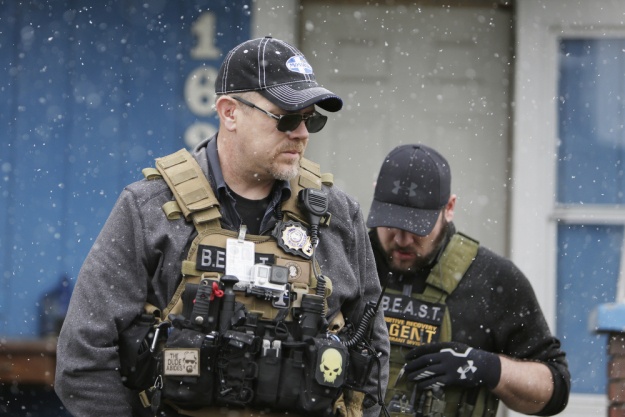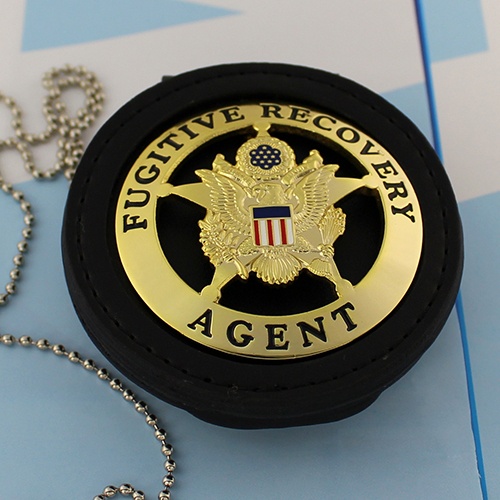
A Basic Job Description of a Fugitive Recovery Agent
If a defendant is released from the Denver County jail on bond but decides to not follow the rules of their bail and flees, a Fugitive Recovery Agent may be hired by the bail bondsman to recover the defendant. In some cases, the bounty hunter works independently. A bounty hunter is the guy or gal with the job of making sure a defendant out on bail or awaiting trial follows the conditions of his bail. This means not running away, staying away from certain people, places, or activities illegal in nature. The Fugitive Recovery Agent working on Adams County Bail Bonds is different from the police or judges who enforce laws, but are none the less responsible for some of the things a court or correctional facility would handle. Other parts of the job include making sure the person out on bail pays the bail in full, tracking down a defendant who has jumped bail, and re-arrest the defendant if necessary.
The Good and the Bad
Not every Fugitive Recovery Agent has a career as exciting as what you might see on some reality television shows on cable, but stressful, dangerous events do sometimes occur during the course of the job. There may indeed be an occasional physical confrontation, or there could be a time when a bounty hunter has to go into a residence or other building that isn’t safe.
There also can be some financial uncertainties, as the fugitive recovery agent only gets paid when a defendant has been recovered or goes to trial, and even then it’s a percentage of the bail amount that is normally shared with whoever is handling bail bonds in Aurora or another Colorado location, for example.
But it’s not all bad. The job can, indeed, be lucrative if the agent is well known, respected, has experience in his or her field and has a large client base. In a case like this, jobs come to the fugitive recovery agent, rather than him or her having to look for them.
Another advantage is the schedule. In many cases, the agent works whatever hours are convenient, setting the times and days of the week most conducive to his or her schedule.
Can a Bounty Hunter Cross State Lines to Pursue a Fugitive?
Bounty hunters are one of the least understood and at the same time, most misunderstood components of the criminal justice system. They’re often thought of as independent wheeler dealers who hang around at the post office reading wanted posters and then enter bars with guns blazing in search of outlaws. But the fact is that in almost every instance the bounty hunter is hired by the bail bonding agent to help track down a defendant who has skipped bail and fled. Many fugitives and would-be fugitives are aware they may wind up with a bounty hunter on their tail. Still, many questions remain as to the actual responsibilities and legal rights of bounty hunters and skip tracers. Whether you're considering becoming a fugitive recovery agent, or you're simply curious about what the job entails, our bail bonding team has the answers in our ultimate guide to bounty hunting and skip tracing.

Nowhere to Run For Bail Bonds Fugitives
The bonding agent hires the bounty hunter because it’s the agent’s duty to return people to custody who they have bailed out. Why’s that? Because it’s the agent who actually posted the bond for the accused. As a result, they are the ones the law considers legally responsible if the person flees. The loved one who signed on as indemnitor paid a separate fee to the bail bondsman for their services and put up collateral to secure the bond. But the bonding agent is the payee of record.
So once a person decides to head for the hills the bonding agent is the one responsible for tracking them down. But bonding agents are busy. So they hire bounty hunters to conduct search and retrieval operations on the fugitive for them. In many cases the accused can be tracked down without too much difficulty. That’s because most humans are creatures of habit. So once the bounty hunter locates relatives, friends and known hangouts it’s often just a matter of time before the fugitive makes an appearance.
The bounty hunter has the authority to enter any premises owned or rented by the accused without a warrant to apprehend them. They can also apprehend them in almost any public venue such as restaurants, bars and the like. But if a fugitive is determined to stay free and heads out of state can the bounty hunter pursue them? The answer in almost all cases is “yes”.
How Did Bounty Hunters Obtain This Power?
The contemporary bounty hunter derives their power to cross state lines in pursuit of a fugitive from Adams County, Broomfield County, Weld County or Denver by way of a 19th century Supreme Court ruling known as Taylor v Taintor. In that decision the Supreme Court affirmed the notion that, once they sign the bail contract with the bondsman, the defendant places themselves in the custody of said bail agent as well as anyone that works for the bail agent, including the bounty hunter. Once the defendant breaks the bail contract the bail agent then has the right to retrieve them. Even if it means pursuing them from state to state.
In effect the Supreme Court determined that bondsmen, and the bounty hunters that work with them, are proxies of the state. As such they are deserving of police powers and have the right to pursue the accused to whatever length. The only restrictions on the bounty hunter’s ability to pursue are that they cannot pursue and apprehend a fugitive in a state that does not recognize the authority of the bail agent and they cannot pursue fugitives internationally.
Ye Olde Castle Doctrine
The thing about fugitives is that most of them are essentially practical. They don’t flee to Montana or Wyoming where they’ll have a hard time finding a place to live and have to endure long, brutal winters. Instead they head for the sunshine and warmth. A good proportion wind up in sunny Florida where accommodations are plentiful and the beaches are endless. Why does that matter? Because Florida is one of those states that lives by the Castle Doctrine.
The Castle Doctrine allows a person to use deadly force on an intruder if they have reason to think their life is in danger. And since bounty hunters often enter private homes with guns drawn to protect themselves one could argue that an unsuspecting fugitive had reason to believe his life was very much in danger and therefore had a right to gun down the bounty hunter.
Fortunately for bounty hunters, and unfortunately for fugitives, it’s not that cut and dry. Because the Castle Doctrine comes complete with a number of caveats including this one:
The Castle Doctrine does not apply if the invader has the right to be in the home.
Remember, the Supreme Court has recognized bounty hunters are proxies of the state with police powers who have a right to pursue a fugitive across state lines. They also recognize that the fugitive signed over custody of himself to the bail bonding agent and bounty hunter when he signed the bail contract. Therefore, the bounty hunter very much has a right to be in that house. So if the fugitive comes out firing hoping to hide behind the Castle Doctrine it’s not going to work.
While you may choose to become a bail bondsman in Denver, a related and equally important field is for a career known as a Fugitive Recovery Agent, also known more popularly as a Bounty Hunter. A Fugitive Recovery Agent has an arguably more exciting job than for someone who works directly in Colorado bail bonds industry.
Bounty Hunters in Fiction
Bounty hunters hold a special place in the culture of many countries because of the image they project, or the job they do when law enforcement can’t or doesn’t have the resources. But they are also staples of fiction, in movies, books, television, and online. Some of the better known fictional bounty hunters include:
- Richard Deckard, from the Philip K. Dick novel Do Androids Dream of Electric Sheep, later immortalized on film by Harrison Ford in Blade Runner.
- Famous American television and movie star Steve McQueen played bounty hunter Josh Randall in the television series Wanted: Dead or Alive.
- The Star Wars character Boba Fett is an inter-galactic bounty hunter charged with “recovering” Han Solo.
And in the Simpsons animated television series, Homer Simpson and his neighbor Ned Flanders get to play bounty hunters in one episode.

When it comes to Denver Bail Bonds and working as a fugitive recovery agent, also called a bounty hunter, anyone interested in the profession needs to think long and hard before jumping in. Defendants out on bail from the Denver City jail who skip their court date and flee could be dangerous, hardened criminals.
As such, anyone who wants a career in bail bonds in Aurora needs to ask a number of questions, preferably to a licensed and experienced fugitive recovery agent.
Like many jobs where you sell a product or service, the amount of money a fugitive recovery agent or bail enforcement agent can make varies. Most are paid on contingency, meaning if they don’t fulfill their obligation – namely, returning a defendant to custody or making sure the person appears in court – then they don’t get paid. And when they do, it’s usually a percentage of the bail with the bail bondsman company getting a share, too. Some fugitive recovery agents who are well established earn a comfortable six-figure income, while even those who work part-time nights or weekends could earn $25,000 or more.
Is Bounty Hunting Dangerous?
It can be. No amount of training or experience can prepare you for every situation, as every defendant reacts differently when being tracked down and apprehended. Some give in right away, while others will try and resist as long as possible. Some defendants that an agent is paid to track down are hardened criminals.
Can Bounty Hunters Carry A Gun?
With the proper training and licensing, a fugitive recovery agent can carry a weapon, but must abide by all laws.
Do Bounty Hunters Get Into Car Chases
Car chases occasionally happen, though most agents try their best to obey all laws wherever possible. The best agents out there play by the rules when it comes to Colorado Bail Bonds.
How Can I Become a Fugitive Recovery Agent?
In Colorado, licensing is handled by the Department of Regulatory Agencies (DORA), which also provides information on where testing takes place. Law enforcement schools offer pre-certification training programs to those interested in a career as a bounty hunter.
What Kind of Skills Do Aurora Bail Bonding Professionals Need?
Many different skills are required to be successful. There are any number of “hard” and “soft” skills that pay dividends: Surveillance, Interviewing and Deception Detection, Skip Tracing, Negotiating, Marketing, Apprehension Techniques, Networking, Pretexting, and Research skills. As with any profession, a fugitive recovery agent needs to be well rounded in terms of a formal education, and in getting a good read on people they may be pursuing.
Professionals don’t care for the title “Bounty Hunter.” Why? Bounty Hunting smacks of the Wild West, when people were offered rewards to capture or kill a criminal or someone suspected of criminal behavior. But times have changed. Today, rewards are only offered for information leading to capture or arrest of a fugitive so the legal system can run its course. Fugitive recovery agents work for professional fees rather than bounties. Within the industry, “Bounty Hunter” is increasingly being used in an insulting manner.
Where Can I Get Training and Certification?

The official pre-certification courses and licensing exams are handled through the Department of Regulatory Agencies, but several brick and mortar schools offer fugitive recovery agent courses which are a good building block for further course work and eventual certification training.
When a person is granted bail it comes with one massive condition attached: you must appear at the specified date to face the charges against you. Everyone ever released on bail throughout history has agreed to this condition. Unfortunately some people agree to that condition but then head for the hills as soon as they’re released. When this happens their bail is revoked and they are considered fugitives. The bondsman (who will be in for a prolonged fight to try and recoup his losses from the fugitive’s relatives) hires a bounty hunter to locate and return the fugitive to jail, where he will sit until it’s time for his court appearance. At least, that’s how it used to work.
Until recently, the bail bonding agent would hire a bounty hunter to locate, pursue and apprehend fugitives who skipped out on their bond. Bounty hunters typically spent long hours on the road interviewing relatives, searching suspected hideouts and often coming up empty. Today, however, some bail agents are taking a new and decidedly high-tech approach. Instead of phoning up the bounty hunter as soon as the defendant jumps bail, they’re calling a skip tracer instead. What’s a “skip tracer”? Good question.
Bounty Hunter vs. Skip Tracer: What's the Difference?
The skip tracer has been around for some time. Recently though, they’ve seen their value rise due to a little phenomenon called “big data”. Big data is a reference to the fact that most people create a digital trail wherever they go these days. And that trail is recorded and stored by companies like Google and Bing. Additional traceable information is created every time a person uses a credit card or store loyalty card, every time their smartphone pings a nearby cell tower or they use the internet.
The job of the skip tracer is to sift through this digital treasure, like a prospector panning for gold, until they are able to come up with some nuggets of information that point to a likely location for the fugitive. This type of searching can save loads of time and expense and pinpoint the likely location of a suspect far faster than the old school method of going door to door or staking out suspected hideouts.
What Happens When Skip Tracers Locate the Bail Bonds Fugitive?
Once the skip tracer nails down with a high degree of probability where the fugitive is hiding, they typically turn that information over to the bail bondsman who may pass it on to the bounty hunter. Or they may simply alert local police in Adams County, Broomfield County, Weld County or Denver.
In most cases the bail bond agent will call the bounty hunter, whose only job now is to go grab the fugitive and return him to custody. This new two pronged attack is often much more efficient and effective than the bounty hunter only approach and is being widely adopted in states that are still wise enough to retain the cash bail system.
Why Doesn’t The Skip Tracer Bring in The Fugitive?
Skip tracers are not typically the type of people you’re going to want on your side in a bar fight. Not that they’re weak or cowardly but they’re normally the type of folks that have an aversion to physical confrontation. And that attitude, while understandable, is not going to serve a person particularly well when they need to subdue a large, angry fugitive intent on staying free. This is why the bounty hunter still has an active, important role to play in fugitive recovery. Without them the odds of actually returning the fugitive to jail are long.
Are Skip Tracers Licensed?
No. And this is another reason why the job has attracted so many people recently. Whereas many states regulate the activities of bounty hunters and require that prospective bounty hunters go through many hours of training, a skip tracer can be anyone with a computer and a certain set of skills (see below). Skip tracers don’t only look for fugitives. In fact their industry got started as a way to track down people who had skipped out on car payments, credit card debt and the like.
Today, however, their roles and responsibilities are more clearly defined. As such so are the requirements for becoming one. Any person who possesses all or most of the following abilities may make a good skip tracer:
- The ability to conduct research - Research is the backbone of the skip tracing industry. An effective skip tracer is methodical and knows how to interpret information and follow leads.
- A bit of legal knowledge helps - Not every locale takes kindly to skip tracers using federal, state and private databases to track individuals. So a bit of legal knowledge can be very helpful.
- Attention to detail - Often times the tiniest bit of information can be the thing that cracks a case and reveals a person’s location.
- Persistence - Sometimes people on the run will leave a rich digital trail in their wake and finding them is a walk in the park. Others however, are more careful and don’t yield their whereabouts easily. A good skip tracer is persistent.
The Bottom Line
Fugitives hoping that they can leave the bounty hunter behind if they cross into another state are often times in for an unpleasant surprise. If someone you know is thinking of skipping bail and heading to South Beach to start a new life, they’d be wise to think again. Thanks to the digital revolution fugitive retrieval is changing along with much of the rest of the world. While bounty hunters are still a valuable cog in the wheels of justice their role these days is often less investigative than it used to be, thanks to the rise of the skip tracer.
Working in the fugitive recovery field may be a little less thrilling than it's made out to be in media portrayals, but bounty hunting and skip tracing are both rewarding career options with the potential to seriously benefit local communities and law enforcement alike.